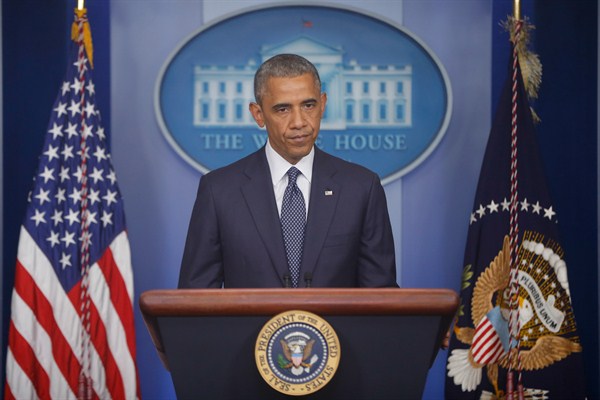It is axiomatic that almost any foreign policy action taken by President Barack Obama will be reflexively criticized by the Republican opposition. What is striking is how, in recent months, congressional Democrats and former Obama administration officials have been more willing to publicly voice their own critiques of the president’s performance. Even his first-term secretary of state, Hillary Clinton, now positioning herself for a possible 2016 run to succeed him as chief executive, has begun to lay out her differences with Obama on how he has handled the national security portfolio.
Most of the critiques follow a common narrative: that Obama’s willingness to offer tough rhetoric has not been matched by decisive follow-on actions. In so doing, the president sends forward a message of American weakness, fecklessness and unreliability.
In the past week, the president, seemingly at odds even with senior members of his own national security team, has provided his critics with two additional items. The first was his willingness to extend additional sanctions relief to the Islamic Republic of Iran in return for keeping aspects of its nuclear program frozen after extending the deadline for reaching an agreement on the ultimate fate and scope of Iran’s nuclear activities to the fall, after the 2014 midterm elections. That came in direct opposition to a bipartisan consensus, certainly on Capitol Hill, that sanctions pressure on Tehran should be intensified, not lifted. The second was concluding that evidence of direct Russian complicity in the downing of MH17 could not, after all, be substantiated, after several days where leading U.S. spokesmen all but accused Russian President Vladimir Putin of personally pulling the trigger on the missile that brought down the Malaysian Airlines flight over eastern Ukraine. Nor has Obama acted on calls from members of his own party and his former ambassador to Russia to intensify sanctions on Russia or provide military assistance to the government of Ukraine.

